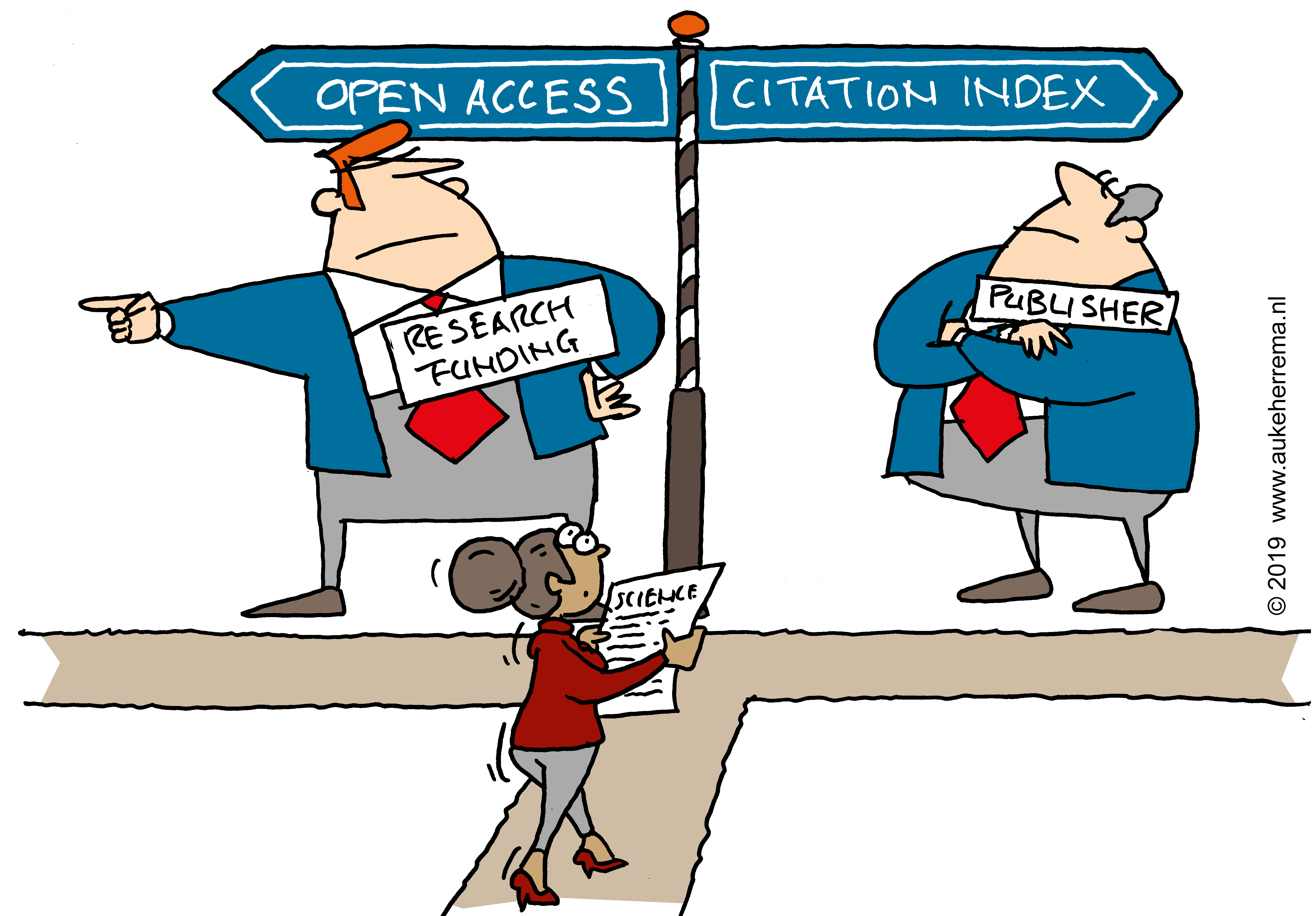Doctoral candidates are being squeezed in the battle between open access publications and research funders and publishers. The PNN platform pleas for clemency.
(Illustration: Auke Herrema)
The PNN promovendi platform (PNN, the PhD researchers’ platform in the Netherlands) supports open access publishing under certain conditions, says Chair Anne de Vries. She upholds the ideal that results of publicly funded research (the second funding stream) should also be accessible to the public. But the platform also sees that members are being obstructed by the accelerated phasing in of obligatory open access publishing.
Accessible to everyone by 2020
The accelerated phasing in is the consequence of plan S (S for shock) of Dutch research funders. Plan S decrees that all publicly funded research must be published open access by 2020. In other words, it must be accessible to everyone.
Research funders, universities and university libraries are supporters of the open access model. But commercial publishers are digging in their heels because they see their earnings model of only making articles available behind paywalls come crashing down. They are dragging their feet, and have been doing so for almost 10 years. Plan S is putting pressure on the situation with its requirement for open access publishing by 2020.
This could make things difficult for doctoral candidates who derive part of their income from this second stream of funds, says PNN Chair De Vries.
- Doctoral candidates are feeling the pressure to publish in high impact journals for their CVs, but these are usually not open access journals.
- While the number of open access journals is growing rapidly (from 500 in 2009 to 12,500 in 2019), not every subject has peer-reviewed open access channels.
- Open access publishing costs money. And a doctoral candidate publication does not have the highest priority in a professional group in terms of the division of remuneration.
Maximum citation index
Open access specialist Just de Leeuwe (TU Delft library), recognises that doctoral candidates prefer journals with a high citation index. He knows that institutions such as NWO and KNAW work with a different recognition and reward system, but he also realises that this will not change the status of leading journals. Doctoral candidates go for the maximum citation index.
Pilot project TU Delft Library
They can also meet the requirement to open access publish by signing a licence in which they give the TU Library permission to publish the article in the repository after six months. In the meantime, an alliance of university libraries, including the TU Delft Library, has set up a pilot project. Should publishers lay any claims, the author is not liable and shares the processing costs with the member libraries.
Kees Moerman, repository staff member at the TU Delft Library, says that so far 10 TU Delft staff members have used this service for 25 articles. De Leeuwe recognises that there are not good open access publications in all subject areas. This is not usually a major problem in new subjects, but in the case of law and humanities, there are often no suitable alternatives.
“Money problems in publishing are partly supported with a special open access fund,” says Moerman. TU Delft has also made an agreement with a few publishers. “We want to ease the financial burden of researchers as much as we can,” says De Leeuwe.
- Also see: using open access for researchers
Do you have a question or comment about this article?
j.w.wassink@tudelft.nl


Comments are closed.